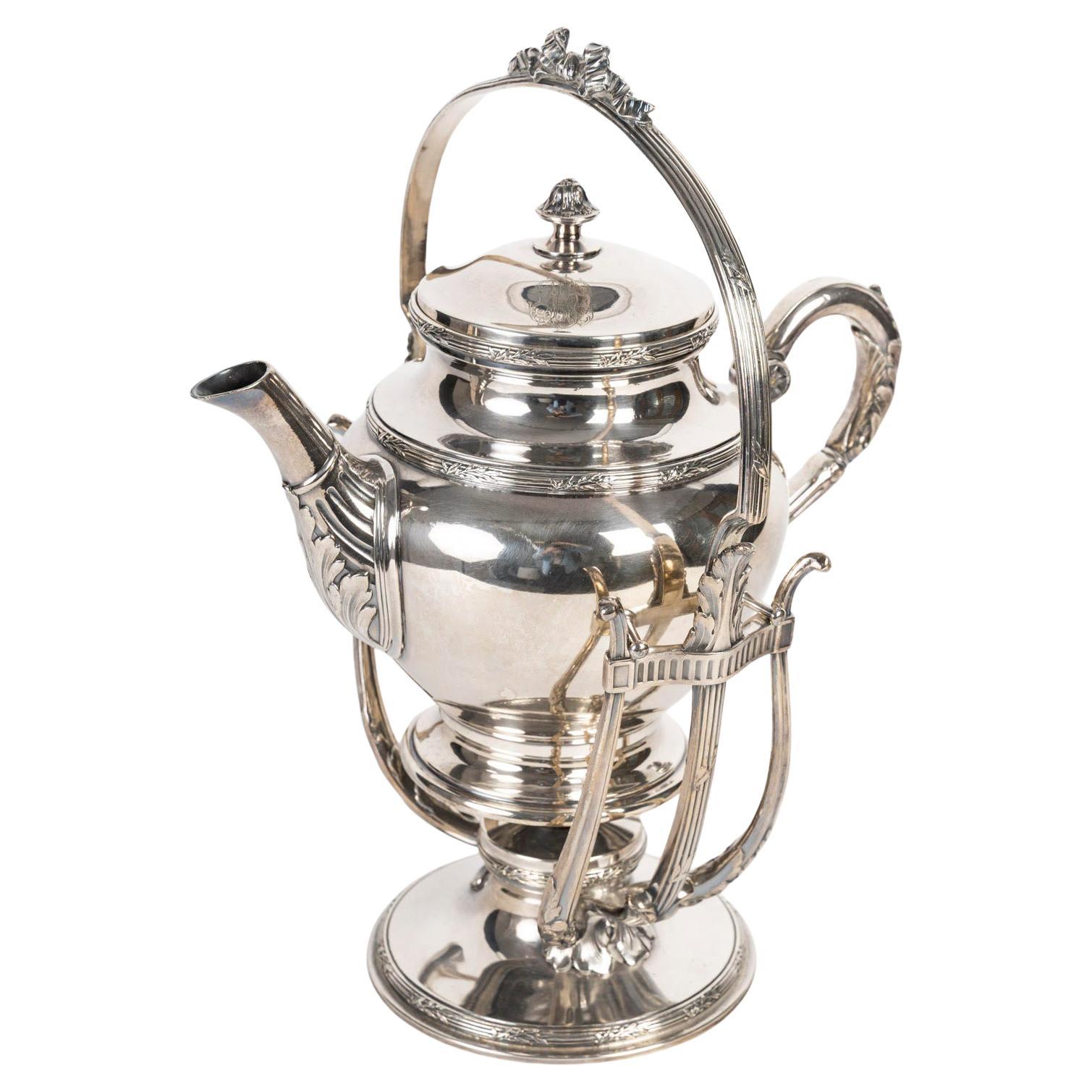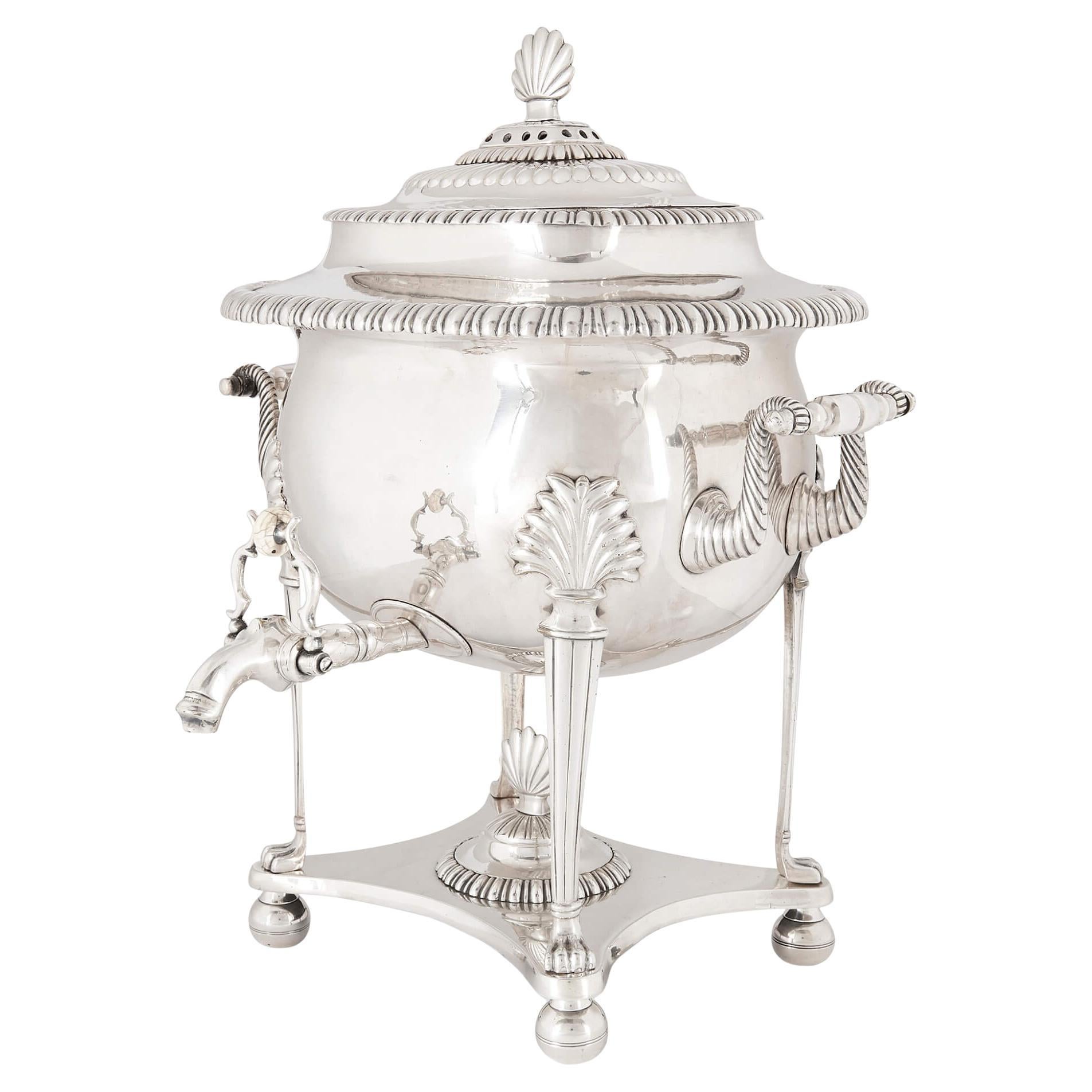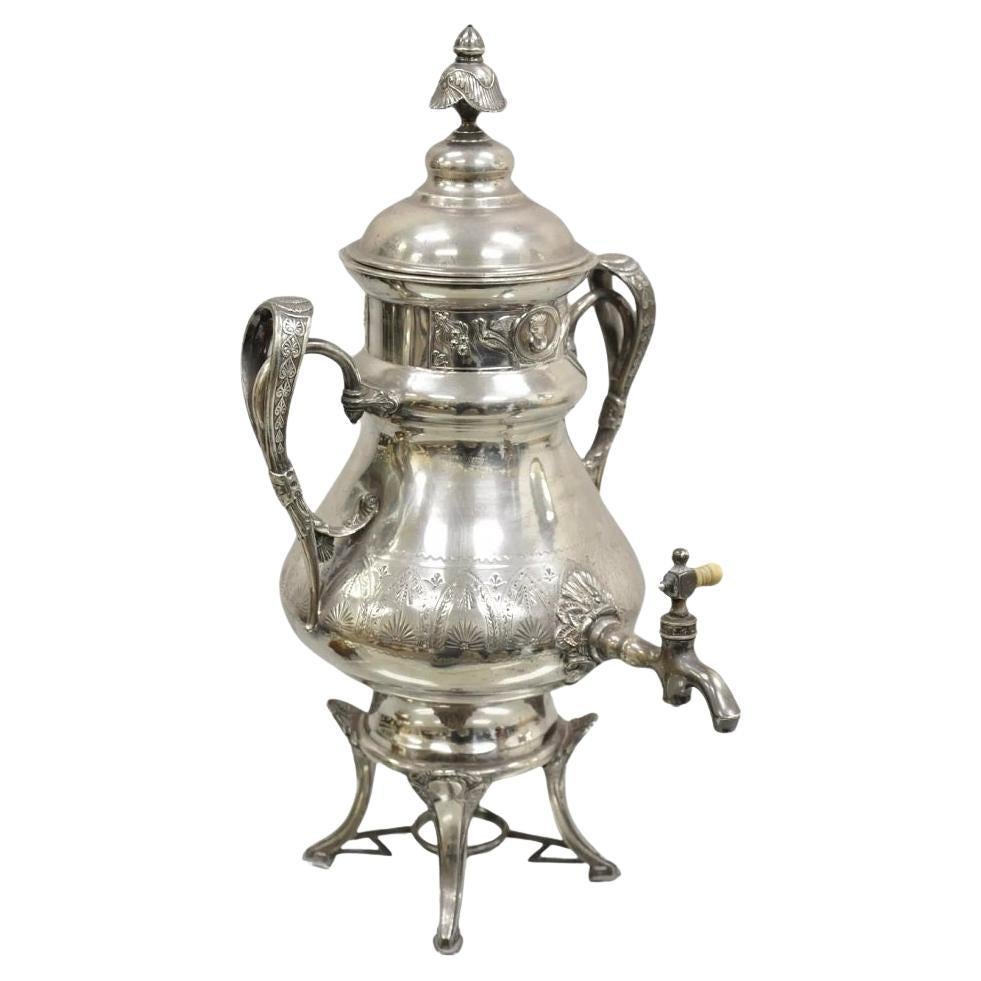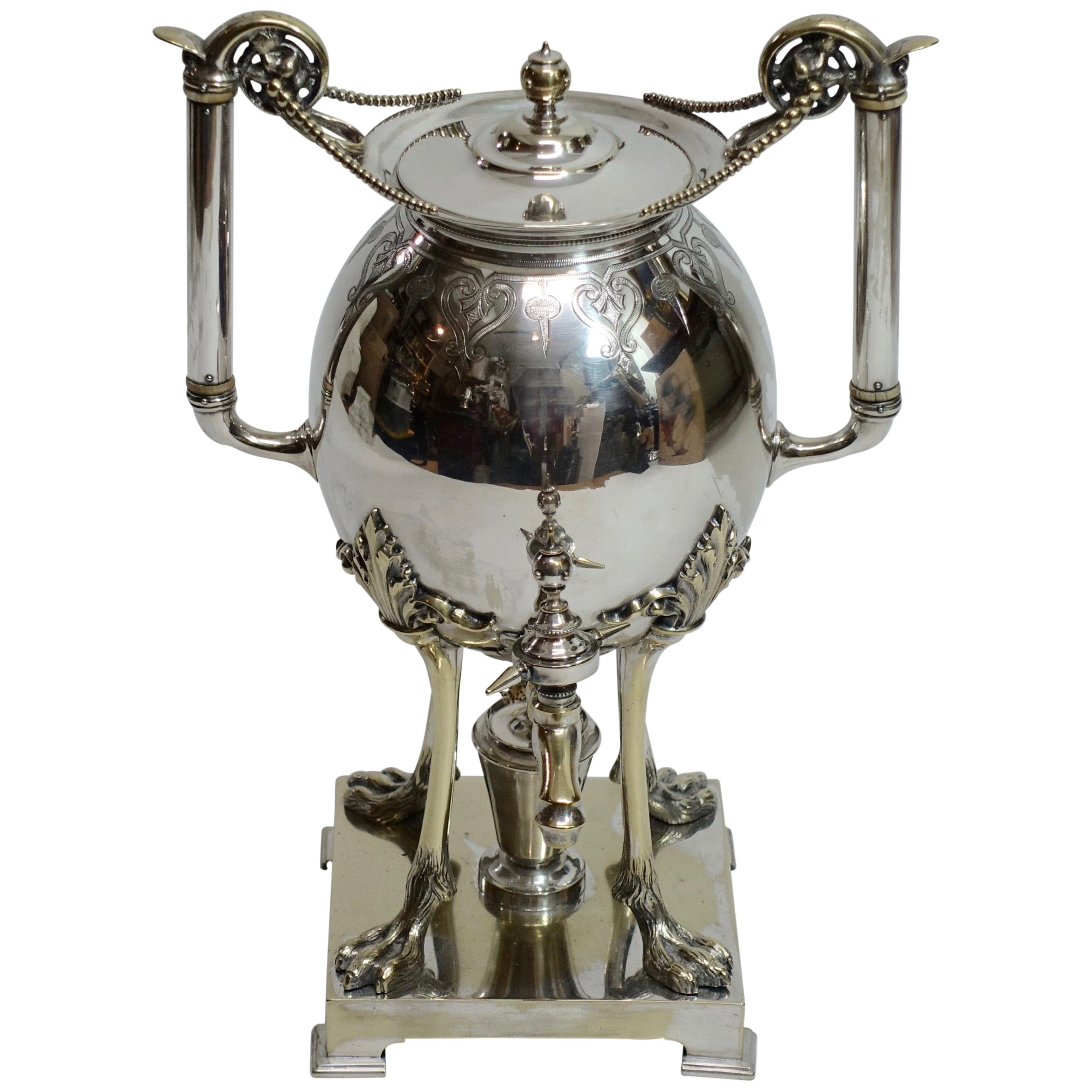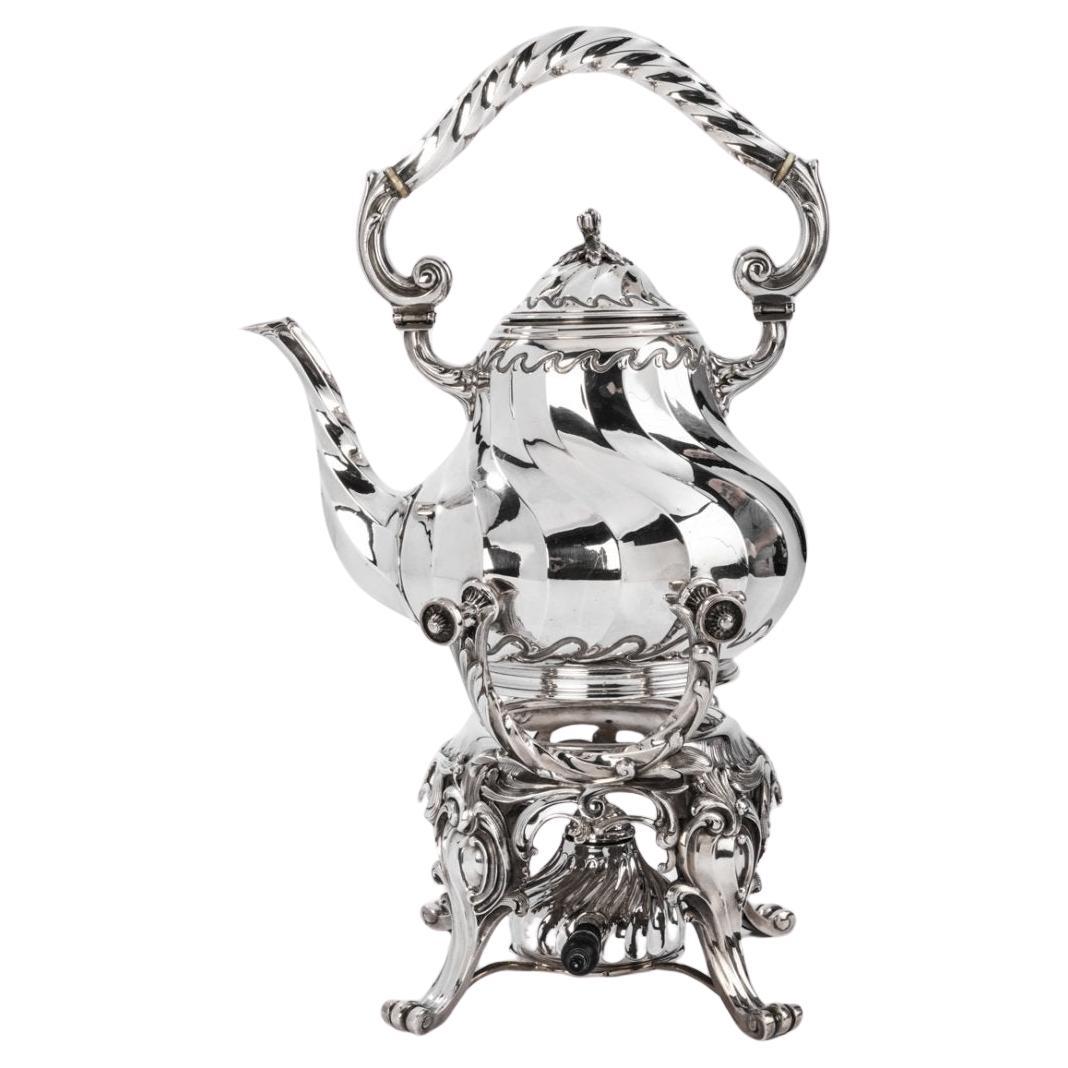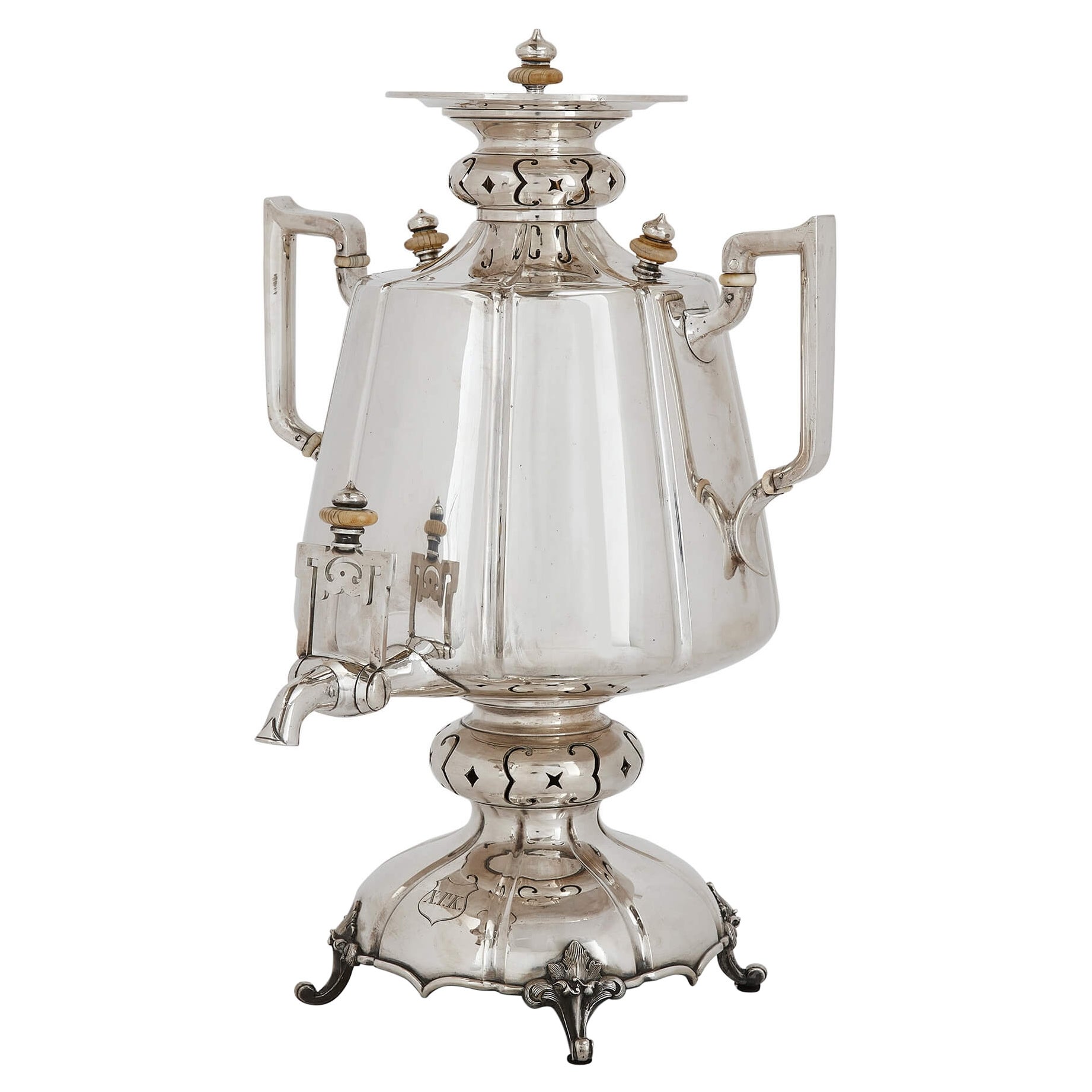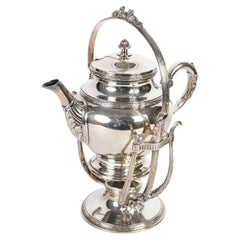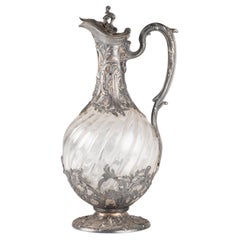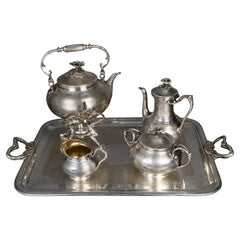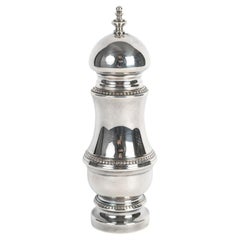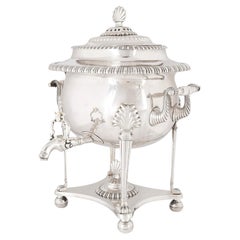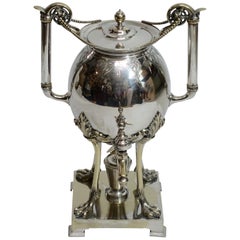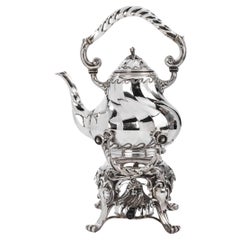Items Similar to Silver-Plated Samovar by Maison Balaine in Paris, Early 20th Century.
Want more images or videos?
Request additional images or videos from the seller
1 of 9
Silver-Plated Samovar by Maison Balaine in Paris, Early 20th Century.
$2,617.53
£1,959.23
€2,200
CA$3,595.24
A$4,019.92
CHF 2,108.61
MX$48,690.83
NOK 26,617.10
SEK 25,146.73
DKK 16,749.24
About the Item
Silver-plated samovar by Maison Balaine in Paris, early 20th century.
Early 20th-century silver-plated samovar by Maison Balaine in Paris.
H: 35cm, W: 24cm, D: 20cm
- Dimensions:Height: 13.78 in (35 cm)Width: 9.45 in (24 cm)Depth: 7.88 in (20 cm)
- Style:Art Nouveau (Of the Period)
- Materials and Techniques:
- Place of Origin:
- Period:
- Date of Manufacture:20th Century
- Condition:Wear consistent with age and use.
- Seller Location:Saint-Ouen, FR
- Reference Number:1stDibs: LU1530245510432
About the Seller
4.8
Platinum Seller
Premium sellers with a 4.7+ rating and 24-hour response times
Established in 2003
1stDibs seller since 2015
346 sales on 1stDibs
Typical response time: 1 hour
- ShippingRetrieving quote...Shipping from: Saint-Ouen, France
- Return Policy
Authenticity Guarantee
In the unlikely event there’s an issue with an item’s authenticity, contact us within 1 year for a full refund. DetailsMoney-Back Guarantee
If your item is not as described, is damaged in transit, or does not arrive, contact us within 7 days for a full refund. Details24-Hour Cancellation
You have a 24-hour grace period in which to reconsider your purchase, with no questions asked.Vetted Professional Sellers
Our world-class sellers must adhere to strict standards for service and quality, maintaining the integrity of our listings.Price-Match Guarantee
If you find that a seller listed the same item for a lower price elsewhere, we’ll match it.Trusted Global Delivery
Our best-in-class carrier network provides specialized shipping options worldwide, including custom delivery.More From This Seller
View AllChristofle Silver-Plated Samovar, Napoleon III Style, 20th Century.
By Christofle
Located in Saint-Ouen, FR
Christofle silver-plated samovar, Napoleon III style, 20th century.
Samovar by silversmith Christofle in silver-plated metal, Napoleon III style, early 20th century.
H: 39cm, W: 31c...
Category
20th Century French Napoleon III Sheffield and Silverplate
Materials
Silver Plate
Silver and Crystal Ewer, 19th Century, Napoleon III Period.
Located in Saint-Ouen, FR
Silver and crystal ewer, 19th century, Napoleon III period.
Beautiful ewer, Napoleon III period, 19th century in silver and crystal.
H: 29cm, W: 15cm, D: 13cm
Category
Antique 19th Century French Napoleon III Crystal Serveware
Materials
Crystal, Silver
19th-Century Silver-Plated Tea and Coffee Service from Christofle, Napoleon III.
By Christofle
Located in Saint-Ouen, FR
19th-century silver-plated tea and coffee service from Christofle, Napoleon III period.
19th-century tea and coffee service from Christofle, Napoleon III period.
H: 33cm, W: 65cm, D...
Category
Antique 19th Century French Napoleon III Sheffield and Silverplate
Materials
Silver Plate
Silver Plated Pepper Pot, Napoleon III Style, 20th Century.
Located in Saint-Ouen, FR
Silver plated pepper pot, Napoleon III style, 20th century.
Napoleon III style silver-plated pepper pot, 20th century.
H: 19cm, D: 6.5cm
Category
20th Century French Napoleon III Sheffield and Silverplate
Materials
Silver Plate
Silver Plated Liquid Measure, 19th Century.
Located in Saint-Ouen, FR
Silver plated liquid measure, 19th century.
19th century silver plated liquid measure.
h: 6,5cm, d: 4cm
Category
Antique 19th Century French Napoleon III Sheffield and Silverplate
Materials
Silver Plate
Porcelain Teapot, Bronze Handle, 20th Century.
Located in Saint-Ouen, FR
Porcelain teapot, bronze handle, 20th century.
A 20th century porcelain teapot with a bronze handle.
H: 18cm, W: 14.5cm, D: 10cm
Category
20th Century Asian Napoleon III Porcelain
Materials
Bronze
You May Also Like
Twin-Handled Antique English Silver Plated Samovar, London, Late 19th Century
Located in London, GB
A twin-handled English silver plated samovar
English, Late 19th century
Measures: Height 43cm, width 33cm, depth 33cm
This magnificent piece is a large silver plated and bone ha...
Category
Antique Late 19th Century English Late Victorian Tea Sets
Materials
Silver Plate
Antique Mermod Jaccard & Co Art Nouveau Silver Plated Tea Urn Samovar
By Mermod Jaccard & Co.
Located in Philadelphia, PA
Antique Mermod Jaccard & Co. Art Nouveau Silver Plated Tea Urn Samovar. Circa Early 20th Century. Measurements: 18" H x 9.5" W x 11" D.
Category
Early 20th Century Unknown Art Nouveau Tea Sets
Materials
Silver Plate
Silver Plate Aesthetic Movement Hot Water Urn Samovar, American 19th Century
Located in San Francisco, CA
An Aesthetic period silver plate on brass hot water urn samovar. Wonderfully detailed and a very fine example of this style. American, late 19th century (1...
Category
Antique Late 19th Century American Aesthetic Movement Sheffield and Silv...
Materials
Silver Plate
Goldsmith Martin Marie Vve - Samovar Rockery In Solid Silver Xixth
By Angelique Marie Martin 1
Located in SAINT-OUEN-SUR-SEINE, FR
Silver samovar consisting of a four - legged scrolling support supporting an ebony frog burner surmounted by a large twisted jug with waves and foliage.
handle and spout twisted
Di...
Category
Antique 19th Century French Louis XV Sterling Silver
Materials
Sterling Silver
19th Century Russian Silver Samovar
Located in London, GB
19th century Russian silver samovar
Russian, 1875
Height 42cm, width 28cm, depth 31cm
This elegant silver samovar was crafted by Russian craft...
Category
Antique Late 19th Century Russian Tableware
Materials
Silver
Vintage Silverplate Samovar, Coffee Urn Made by Sheridan
Located in Birmingham, AL
Vintage/ antique silver-plated coffee urn, likely crafted in the late 19th or early 20th century. with detach warmers, in very good condition, a statement piece, it is very shiny , i...
Category
Mid-20th Century American American Classical Sheffield and Silverplate
Materials
Silver Plate
More Ways To Browse
1847rogers Bros
Antique Silver Plated Condiment Sets
Silver Hot Water Urn
English Silver Plated Bottle Holder
Matthew Boulton Silver Plate
Sheffield Silver Biscuit Barrel
Sheffield Tea Urn
Antique Sheffield Pewter
Italian Broggi
Rogers 1847 Silver Plate
Silver Plated Tankards
Silverplate Pierced Basket
Toast Holder
Antique Samovar Tea Urn
Elkington Silver Plated Tray
John Mackay
Reproduction Sheffield Plate
Sheffield Meat Dome
